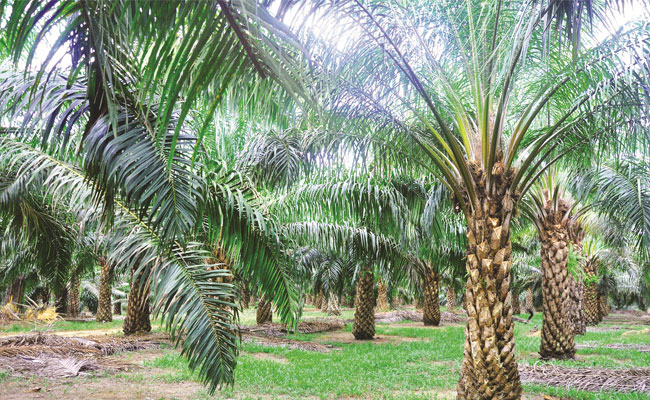Pakistan: Experts call for palm oil cultivation

Agriculture researchers and experts have called for the cultivation of palm oil and spreading awareness among farmers to promote this valuable crop. They stressed the need for investment in the palm oil sector to reduce edible oil imports and address the economic challenges faced by the country.
In a groundbreaking development, Sindh Agriculture University (SAU) Tando Jam has successfully conducted a palm oil production experiment. Experts highlighted the importance of developing a marketing mechanism for farmers and encouraging them to cultivate palm oil. This initiative could significantly reduce the import of edible oil and help address the ongoing economic crisis. Urban investors are urged to invest in agriculture.
A seminar titled “Oil Palm Production Technology and Advanced Nursery Management” was hosted by SAU in collaboration with the Agricultural Linkages Program (ALP) of the Pakistan Agricultural Research Council Islamabad at the SAU Senate Hall on Friday.
SAU Vice Chancellor Dr Fateh Marri pointed out that Pakistan imports edible oil worth $6 billion, the second-largest import after furnace oil. During the current economic crisis, the country is striving to secure only $1.5 billion from the International Monetary Fund (IMF). Increasing domestic edible oil production through palm oil cultivation in coastal, saline, and humid areas could significantly reduce reliance on the IMF.
He stressed the need for urban investors to invest in agriculture without using security concerns as an excuse. He called for a collaborative effort between the government, research institutions, and the Coastal Development Authority to encourage farmers to grow palm oil.
Dean of the Crop Production Faculty, Prof Dr Inayatullah Rajpar, said all stakeholders must develop a sense of ownership. He advocated for integrating coastal areas, Kirthar, Kohistan, and Thar into the value chain and agriculture productivity.
Principal Investigator of the Palm Oil Project, Dr Allah Wadhayo Gandahi, presented his paper, stating that the research will support farmers in suitable areas with seeds, farming techniques, marketing, and intercropping with palm oil. He mentioned successful experiments in Tando Jam and other areas, claiming that palm oil can be a game changer for farmers and significantly reduce edible oil imports.
Pakistan Agriculture Research Council (PARC) Islamabad Director of Social Sciences, Dr Muhammad Aslam Memon, said industrial participation is vital for the project’s success. He suggested promoting agreements between industries, research institutions, and farmers to address concerns and promote the project collaboratively.
Sharing facts and figures with The Express Tribune, industry experts and leaders of the Pakistan Vanaspati Manufacturers Association (PVMA) noted that the association represents a sector with an annual turnover exceeding Rs2,400 billion. They contribute up to Rs550 billion to the national exchequer through duties, taxes, and other levies. The sector is among the top five revenue sources, as announced by the Federal Board of Revenue and the Ministry of Finance.
They stated that over 3.2 million metric tonnes of edible oil are imported into the country.
Read also
Wheat in Southern Brazil Impacted by Dry Weather and Frosts
Oilseed Industry. Leaders and Strategies in the Times of a Great Change
Black Sea & Danube Region: Oilseed and Vegoil Markets Within Ongoing Transfor...
Serbia. The drought will cause extremely high losses for farmers this year
2023/24 Safrinha Corn in Brazil 91% Harvested
Write to us
Our manager will contact you soon



